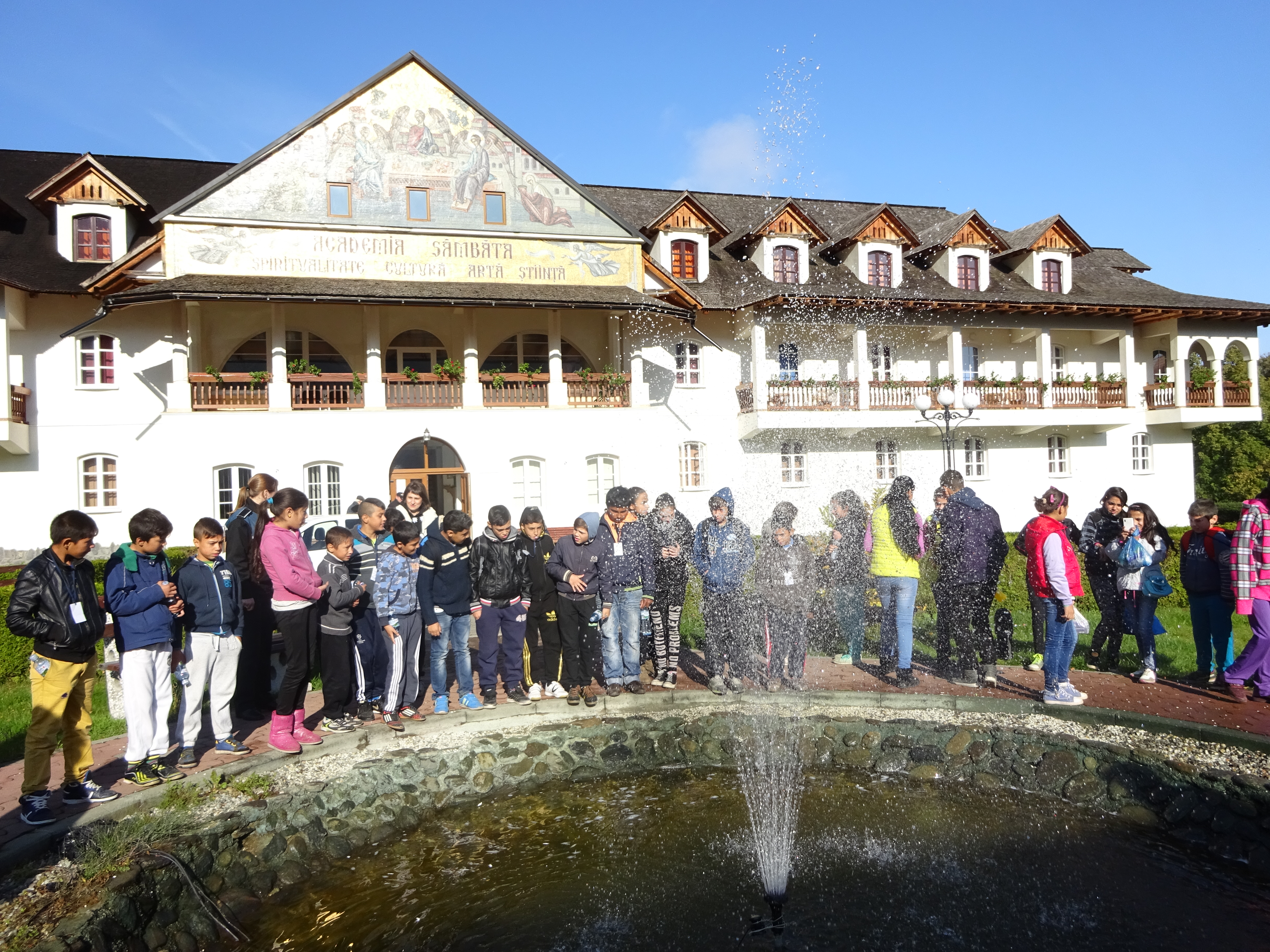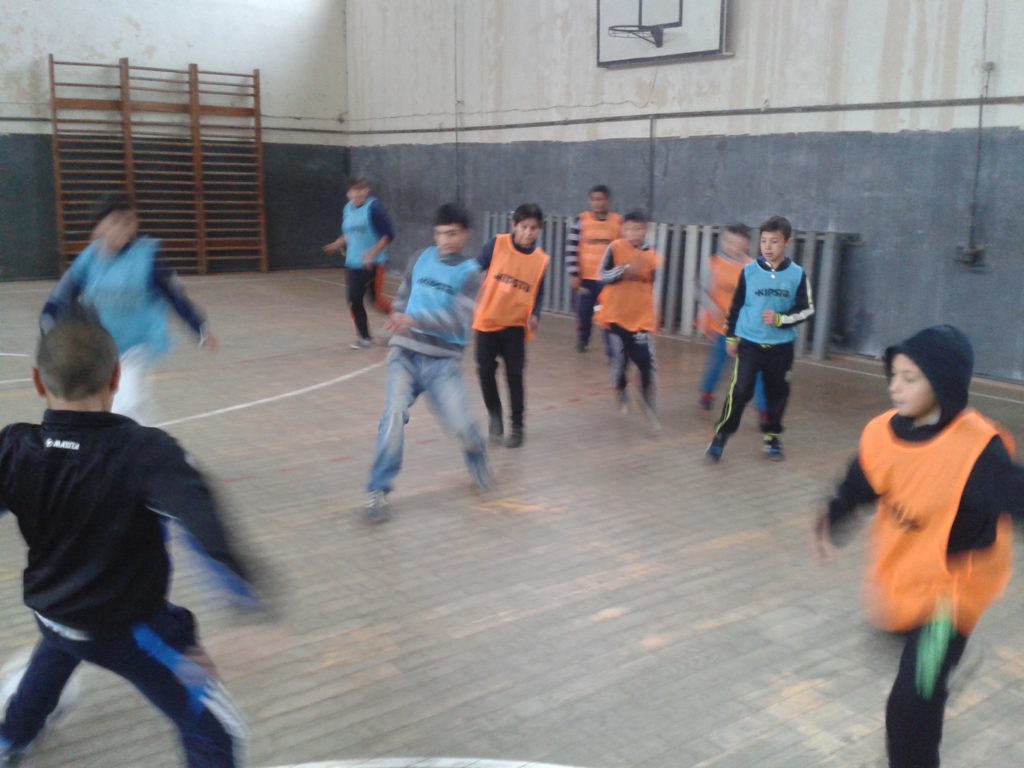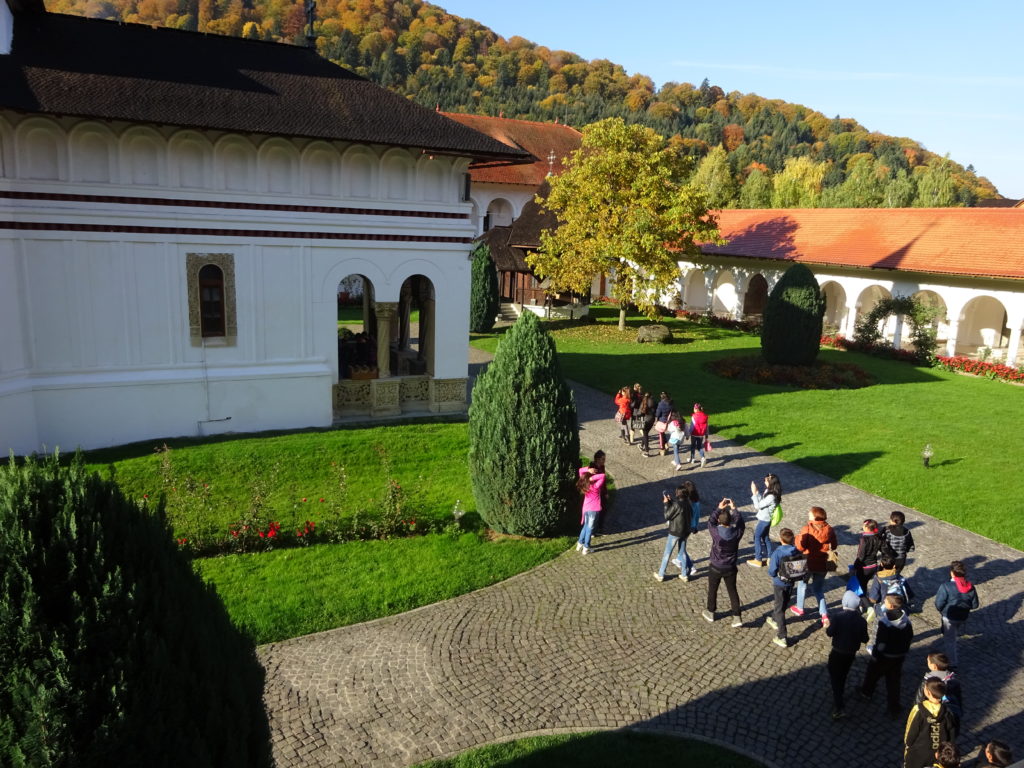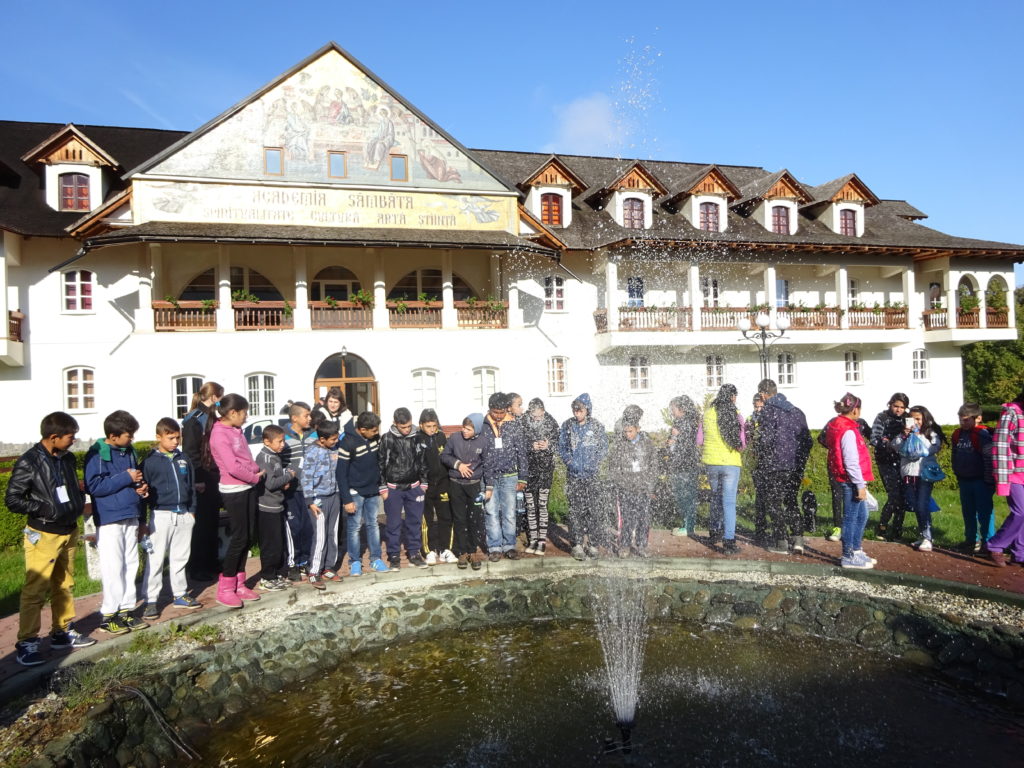
17 Oct STOP SCHOOL DROPOUT!
In this project, the Association Sibiul Azi conducted multiple types of activities, being in charge of the organization and implementation of extracurricular activities (shows, exhibitions, trips, interactive workshops, sports activities), of foreign language courses, of soft skill workshops and of guidance activities, with the help of the associated experts.
The objectives included the supply of specialized informal and non-formal educational services, able to improve school-related behavior and to encourage the attendance of the courses; the guarantee of a secure space where spare time could be spent; the prevention of child neglect and of the problems with the response to the school environment; the faster integration in the school programme of school dropouts; the decrease of the risk-generating factors; the strengthening of the status of school and additional educational activity as space of personal development. The improvement of the quality of learning results by the implementation of active-participatory methods both in the activities conducted with the students and in the collaboration with their parents. The scope of the obtained results includes:
The students’ involvement in the activities
The decrease of the truancy rate
Progresses in the improvement of the students’ knowledge
New perspectives on the educational process
Objects/topics necessary for normal cognitive development
Reduction of the gap existing among students
Improvement of the students’ interest in the participation to the educational act
Improvement of the parents’ interest in getting involved in their children’s education
Emotional support and collaboration with the community members
Access to new means of communication and media
Inclusion and development of the ability to empathize and improvement of communication with classmates
Decrease of violence
Prevention and fight against violent tendencies amid small groups
Multiple forms of interacting with various objects and different fields of knowledge
School – family cooperation
School – community cooperation
State institution – school – family – community cooperation
The activities had a chance at success in the gradual change of the students’ approach of school and of their teachers. The students’ involvement was gradual, matching the pace of the evolving activities; the students were captivated by a new modality of perception and of execution of the educational and training process. Every individual student was able to discover and develop skills in line with their cognitive, affective capacities, according to their immediate interests and by taking part in an intensive education and self-education process.
English language courses were conducted in groups, according to the participants’ age. Different types of materials were used: print, media for the interactive learning of English. The results of such activities promote additional opportunities for the students’ better integration in the community, for their access to another culture, for their later social and professional training. The language package is an efficient form of improvement of self-esteem and of development of personality. Soft skill workshops were important in the sense of time effectiveness, lesson planning and an awakening of the interest in training for a profession.
Student advisory activities were conducted; activities to improve the students’ learning process. Measures were taken to improve the students’ knowledge and skills for better organization, execution and evaluation of the learning and training activity. All these aspects ensured an improvement of a number of mental functions needed in the students’ evolution. The activities conducted with the students focused on their involvement in episodes of consultation, communication, for the purpose of improving their skills. We note some of these positive changes in the students’ learning behavior:
Tendency of reading the guidelines spontaneously
Spontaneous correction of mistakes
Fewer mistakes
Increase of the need of accuracy
Spontaneous use of a more accurate and richer vocabulary and of significantly more diverse concepts
Tendency to search for a larger number of sources of information
Improvement in the readiness of helping others and of receiving help
Reduction of truancy behaviors and of the tendency of becoming isolated
Decrease of verbal and/or physical aggressiveness
Tendency to defend several points of view, positions, opinions, based on logical reasoning
Improved inquisitiveness
Improved ability of self-evaluation and self-criticism
Improved readiness in accepting responsibilities
Improved readiness in actively participating in practical activities and in discussions
Improved tolerance in relation to the others
Development of the ability to volunteer
Greater readiness in the approach of challenges and tasks
Higher extent of attention and focus
Greater relevance of answers and greater adequacy of reactions
Greater involvement in the activities, by formulating questions and/or by expressing personal opinions
Better quality of questions and clear answers
Development of sensitivity in personal relationships
Spontaneous and sensible use of mental functions and operations
Improved enthusiasm attached to the approach of the activities
Improve the feeling of competence and self-worth
Greater readiness of getting engaged in new and less familiar activities
Lower levels of anxiety when facing a new and complex thing
Development and generation of inventive problem-solving strategies
Development of divergent thinking and of the tendency to search for alternative answers
Decrease frustration and anxiety in front of failure
Positive change in the interpersonal relations (greater relaxation)
The students’ involvement in consultation activities led to a shift in the attitude to the activity conducted in the school, which allowed gradual, but essential progress in the shaping of competences required for their educational evolution.






No Comments